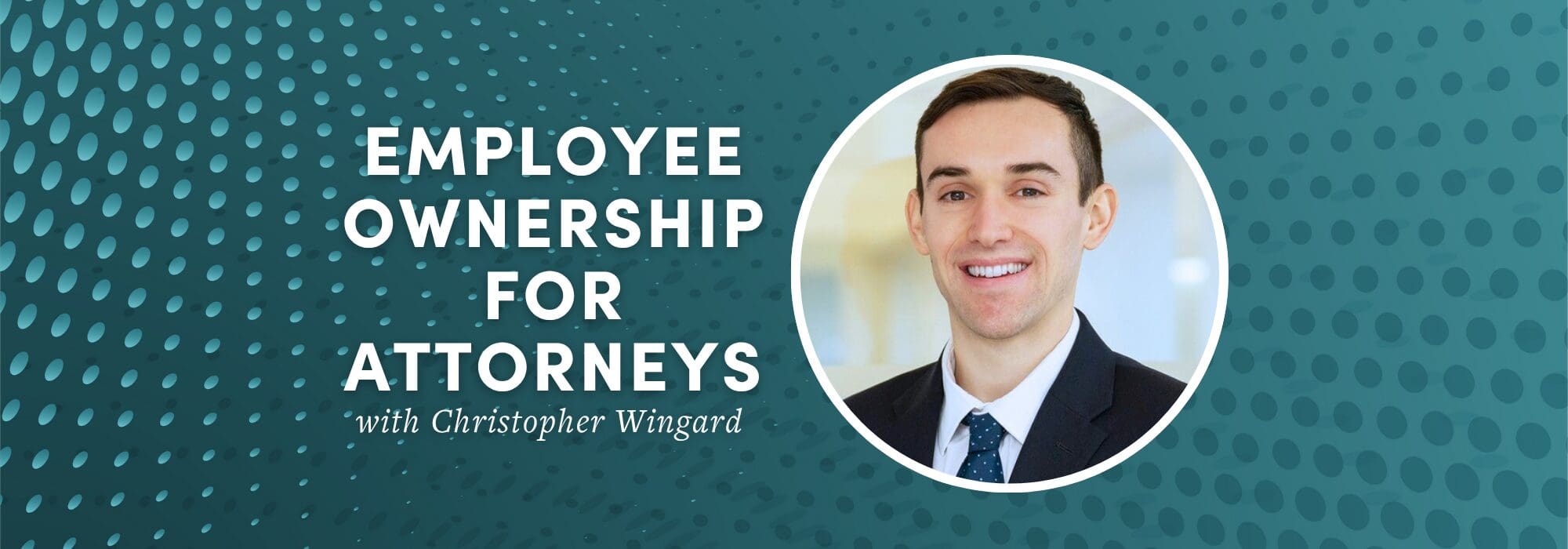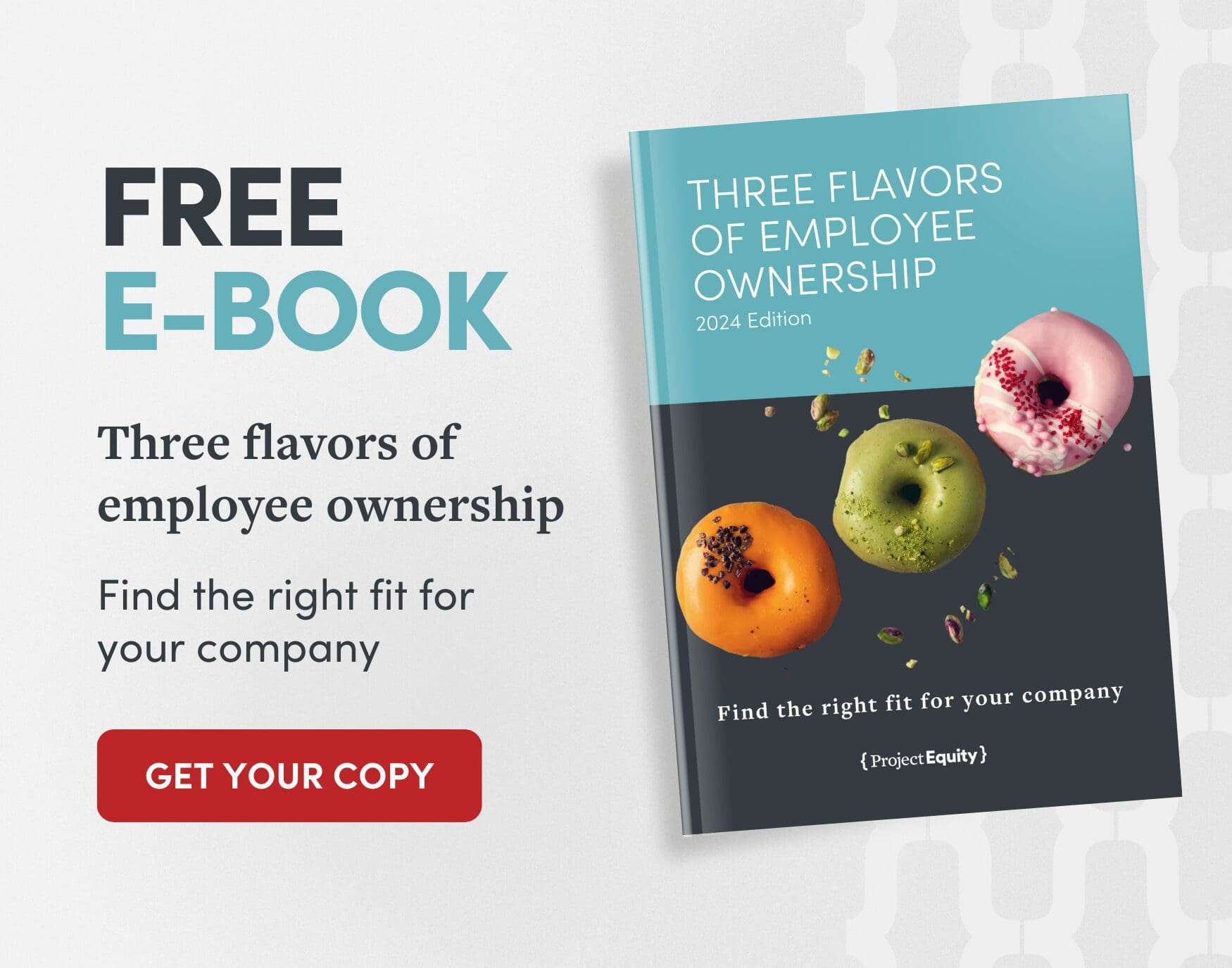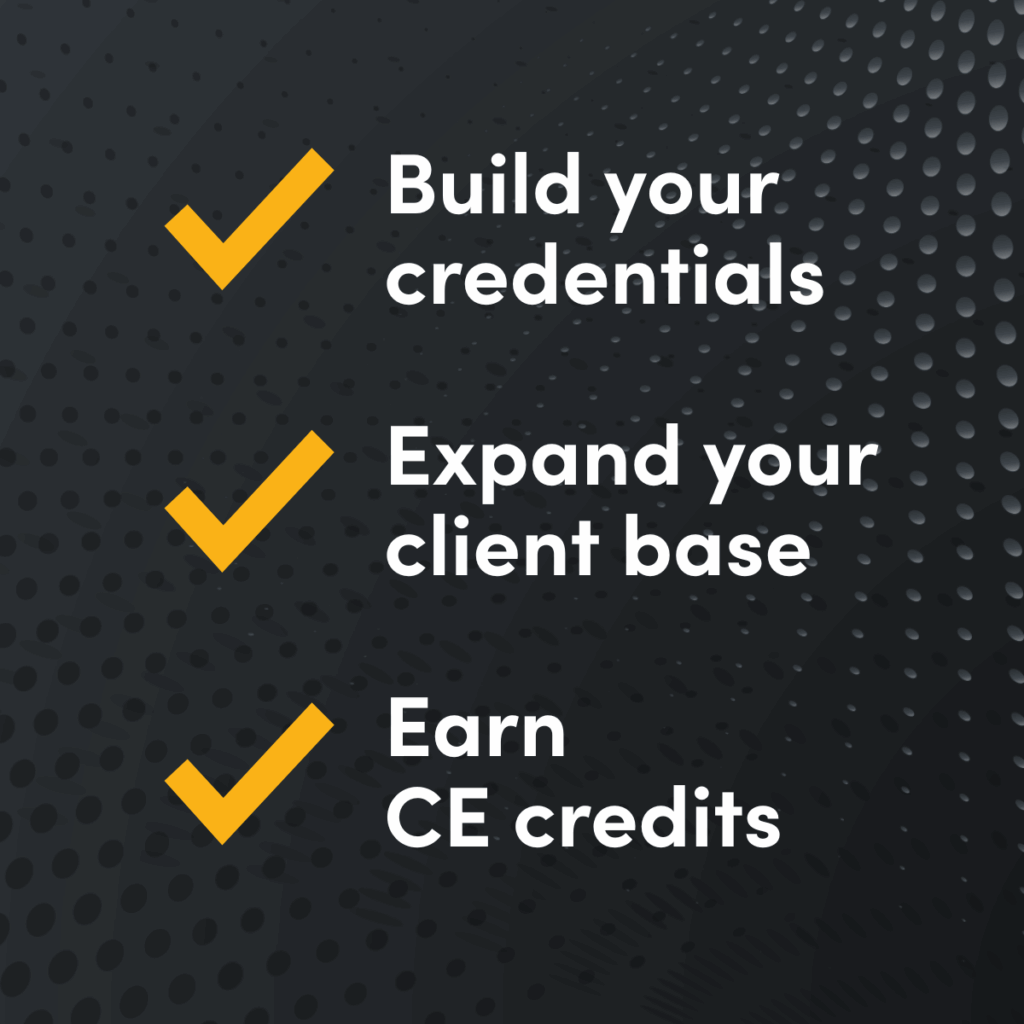Purpose meets practice: how understanding employee ownership strengthens my work as an attorney
- Christopher Wingard
As an attorney, I’ve spent my career helping business owners plan for the future. Over time, I’ve learned that employee ownership (EO) isn’t just a smart succession strategy—it’s a powerful tool for building stronger companies, communities, and client relationships.
In this post, I’ll explore the benefits of knowing about EO, my own journey to becoming an Employee Stock Ownership Plan (ESOP) lawyer, and how this specialization has enhanced my work.
Why EO for attorneys?
Any corporate attorney who provides general counsel or more transactional-based services (for example, M&A deals) needs to understand the full menu of options that are available to their clients.
EO is one of those options, and it can be a great tool to use in the right circumstances. Our job as attorneys is to be the best advisors we can be for our clients, and understanding EO helps us to be that.
How I discovered EO—and became passionate about it
I originally learned of EO while doing policy research for Massachusetts State Senator Julian Cyr. He was especially interested in helping working people in my home district of Cape Cod, so I explored different ways the Commonwealth of Massachusetts could support EO in its various forms (e.g., ESOPs, worker cooperatives, etc.). Julian Cyr then led efforts to revive the Massachusetts Center for Employee Ownership (MassCEO) in 2019.
From there, I cultivated my personal interest by moving into a housing cooperative in Cambridge, where I gained first-hand experience in the world of cooperative living and collective ownership.
At that time, I was also completing a JD/MBA at Boston University, where I continued to research different forms of EO. After practicing for a large law firm and then an ESOP practice based in the greater Philadelphia region, I had the opportunity to join my current law firm Kleinbard LLC as an ESOP attorney.
My role in an ESOP transaction
During an ESOP transaction, my role as an ESOP attorney is to counsel the company and the selling shareholders through every stage of the deal. It starts with a financial analysis of the company’s value that’s completed by a third-party sell-side financial advisor. We then move on to the negotiation with the buyer—that is, the ESOP trustee who is purchasing the company on behalf of the employee stock ownership trust for the benefit of the future ESOP participants (the employee-owners).
I work with the sellers to finalize the term sheet with the trustee, and I’m then responsible for drafting the transaction documents, including the purchase agreement, ESOP loan documents, and financing documents that memorialize the deal terms laid out in the term sheet.
I also counsel the client with respect to the ESOP plan design. An ESOP is a qualified retirement plan with various design choices that determine when employees become participants, when they receive allocations, when their account balances vest, and when they can receive distributions. Each ESOP is different; it’s important to tailor the plan design to every client’s unique situation and goals. Once the plan design is completed and the ESOP transaction has closed, I’ll provide ongoing counsel regarding ESOP compliance and administration.
In addition to representing the selling shareholders, in other deals, I also represent ESOP trustees as the buyers. When representing the trustee, I work to ensure the terms of the deal are fair to the ESOP and that the trustee is paying no more than fair market value.
Why I love doing what I do
There are so many success stories about ESOPs and the tangible impact that ESOPs can have in people’s lives—for example, the WinCo foods story where grocery store clerks can retire as millionaires. That’s what really gets me excited about this work. I love that EO provides an opportunity for working people to earn a fair share of their labor’s value in the form of a qualified retirement plan.
EO is most effective when employees are bought into the concept. They need to see the value of EO by understanding the connection between their work and the company’s bottom line, which, in turn, directly impacts the wealth they can accumulate in the ESOP.
How specializing in EO has added to my practice
It’s been a powerful differentiator for me because very few attorneys understand ESOPs or have an ESOP practice. There are many corporate attorneys who are exceptional business advisors and are very talented at traditional M&A work, which means that it’s hard to stand out among that relatively larger group of attorneys.
So, being able to offer ESOP services is a differentiator because it is a niche. If you look at the overall landscape of businesses in the U.S., very few are ESOP-owned. According to NCEO, there were 6,548 ESOPs in the U.S. as of 2022, which is a very small fraction of the total businesses in the U.S.
Being able to offer ESOP services doesn’t just affect me positively—it also benefits the other attorneys at my law firm because it is a huge value for our clients. Some sellers may have businesses that are great candidates for ESOPs, but others may not be interested or be the best fit. We’re able to work with sellers in both situations to find the solution that’s the best fit for their problem.
Why ESOPs?
I should note that attorneys can specialize in any type of EO—ESOPs, worker cooperatives, and Employee Ownership Trusts (EOTs). However, specializing in ESOPs can be a particular competitive advantage for attorneys.
Why is this? ESOPs are the most attractive option for larger businesses, and the basic and most fundamental reason is that Congress recognized ESOPs as a qualified retirement plan. This is a feature, not a loophole of the tax code, that Congress specifically created so that ESOPs could be a powerful tool to increase retirement savings. This is especially a powerful feature for S corporations that are 100% ESOP-owned because they are effectively exempt from federal, and often, state income tax..
For business owners that are excited about coops and their higher degree of worker decision-making power, that feature can be included in an ESOP, too. The ESOP structure is flexible and can permit participants to have greater decision making authority than they might otherwise have. However, subject to certain statutory limits that only apply in extraordinary circumstances, such as the sale of all the businesses’ assets, ESOP participants do not automatically receive new special voting rights if the company would prefer a more traditional management structure. These rights are optional features that can be added to your ESOP, if you’d like them to be.
Similarly, if someone is excited about EOTs because they’re worried about the durability of the structure and a potential sale down the road, it may be possible to address those concerns in an ESOP as well through something like a poison pill warrant structure. These structures are intended to discourage third-party sales and may make the ESOP a bit more durable.
On the other hand, sales of ESOP companies to third-party buyers can often be a great outcome for the ESOP participants who will receive payouts for the shares in their ESOP accounts.
How to become an expert in EO
If you’re an attorney and you’re interested in learning more about employee ownership, I recommend joining the professional organizations that do a great job of advocating for EO and producing educational materials about EO—for example, NCEO and the ESOP Association.
These organizations also put on various regional and national conferences, which are exceptional opportunities to meet other professionals in the field and to learn about the fundamentals, and even the more intricate details of EO transactions.
I was also recently featured as a subject matter expert in a course Project Equity just released called “EO for Attorneys,” which I definitely encourage you to check out! This course provides attorneys with the critical knowledge and skills needed to navigate the complexities of employee ownership transitions. It’s also worth 1.5 hours of NASBA CPE credits and 1.5 hours each from the CFP Board and EPI-CEPA, as well as 1.5 hours of MCLE credits from the California State Bar Association.
Conclusion
Employee ownership has changed the way I practice law—and how I define success as an attorney. It’s more than a legal structure; it’s a way to help business owners receive a fair price for their company while creating lasting value for their employees and their communities.
By understanding EO, attorneys can not only expand their legal toolkit to become better advisors, but also can play a role in building a more equitable and resilient economy.
An Employee Stock Ownership Plan (ESOP) is a qualified retirement plan that allows employees to beneficially own shares in the company they work for. It’s one of the most common and tax-advantaged forms of employee ownership, helping employees build wealth while supporting business continuity.
Understanding employee ownership options like ESOPs, worker cooperatives, and Employee Ownership Trusts allows attorneys to offer more comprehensive advice to business clients—especially in areas like succession planning, M&A, and corporate governance. It also helps attorneys differentiate their practices in a competitive field.
About the author
Chris is an associate in Kleinbard’s Business & Finance Practice. He advises corporations, shareholders, directors and employee stock ownership plan (ESOP) trustees on a wide variety of ESOP-related issues. He provides guidance regarding ESOP transactions, corporate governance, business succession planning, ESOP plan design and ongoing ESOP compliance.




